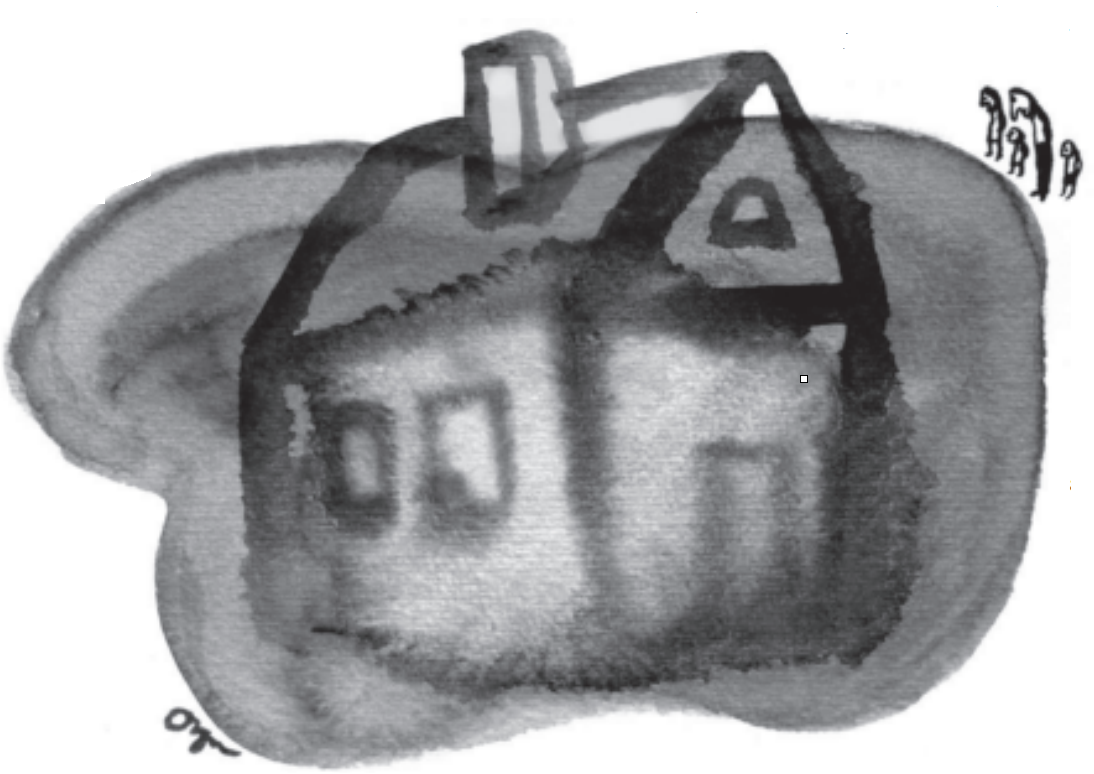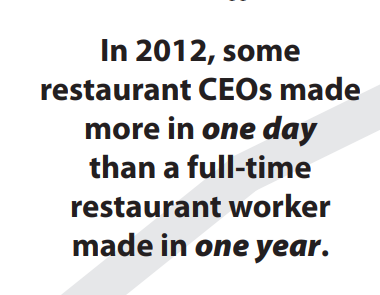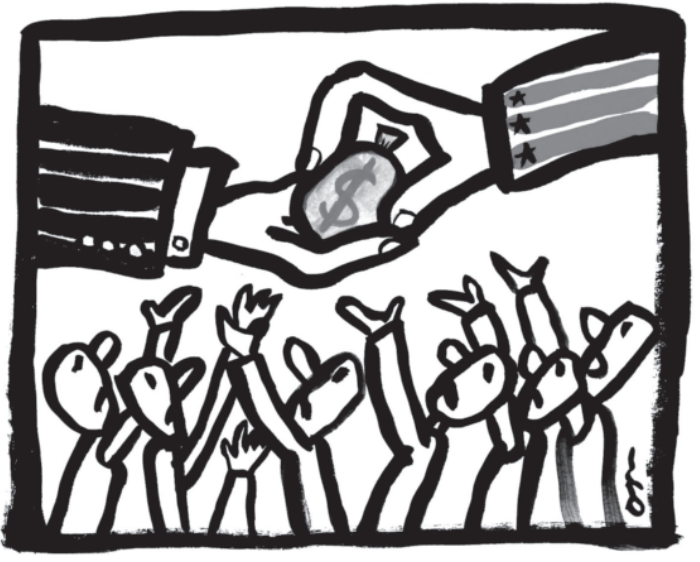What lies ahead?
An economic recession is a period of decline in total output, income, and employment in a business cycle. Recessions are caused by a decline in real Gross Domestic Product (GDP), which causes a slowdown in manufacturing orders, falling housing prices and sales, and a drop-off in business investment. The result of this slowdown is a rise in unemployment, which causes a slowdown in consumer spending.
But what usually causes the slowdown in the first place? Each recession has its own specific causes, but all of them are usually preceded by the expansion phase of the business cycle, where there is an increase in real GDP, income and employment. The cause of the Great Recession of 2007 to 2009 was mortgage-backed securities. Mortgage-backed securities are bonds backed by mortgage payments.
payments. It starts with the banks and other mortgage lenders (banks) making mortgage loans. Instead of holding on to these loans as assets on their balance sheets and collecting the monthly mortgage payments, the banks bundled thousands of them together and sold them off as bonds. These transactions resulted in the banks receiving a single, upfront cash payment for the bond. The bond buyer would receive the monthly mortgage payments as their return in investment.
The banks thought that they were “off the hook” for these mortgages because they transferred any future default risk on these mortgages to the buyer of the bond. Unfortunately for them, they lent a substantial portion of the money they received from selling the bonds to investment firms that invested in the mortgage-backed bonds.
Since the banks thought they were no longer exposed to any of the mortgage future default risk, they became lax in their lending practices. Some mortgage companies were so e a g e r t o sign up new home buyers that they stopped running credit checks and even allowed applicants to claim higher incomes then they were actually earning, in order to qualify them for bigger loans. This resulted in many people taking on a “mortgage that they really couldn’t afford” and were soon failing to make their monthly loan payments. When the many home buyers started to default on their mortgages, the bank lost money on the mortgages they still held and the loans they made to the investors who had purchased mortgage-back bonds.
The U.S. Government usually responds to recessions by adopting an expansionary fiscal policy. The policy consists of increasing government spending, decreasing taxes or both to increase real GDP. Another tool is controlling the money supply.

In 2009, the government launched an economic stimulus package, the American Recovery and Reinvestment Act of 2009 (ARRA). The idea was to flood the economy with additional spending in hopes of increasing consumer spending and to get people back to work. And in fact, it halted a four-quarter decline in GDP, thus officially ending the Great Recession, in June 2009. However, for those unemployed, finding a job is still difficult.
Seeing that very few jobs were created from December 2007 to June 2009, The Federal government wanted to continue expansionary monetary policies of increased government spending and decreased taxes. This fiscal policy increased the Federal budget deficit to $11.9 trillion. The Republicans expressed their concern over the rise in the government budget deficit and were able to defeat the Democrats on extending or increasing the stimulus package (ARRA).
Instead, the Federal Reserve continued the government’s expansionary monetary policy by increasing the money supply. To increase reserves, the Federal Reserve buys U.S. Treasury bonds from a financial institution (i.e. banks, savings and loans or credit unions). The financial institution, in turn, deposits the Federal Reserve check at its district Federal Reserve Bank, thus increasing its reserves. In theory, with the increase in reserves, the financial institutes should be making loans to stimulate consumer spending. Instead, they are holding on to this money.
Jobs reports and minimum wage
According to the U.S. Labor Department, 162,000 jobs were added to the economy in July, 2013. Of the added jobs, 65 percent were part-time or low paying—or both. Retail stores, restaurants and bars are industries that continue to hire. The number of added jobs accounted for more than half of the job gain. But these two industries are known for paying minimum wage—or less, when it comes to hiring tip-based employees such as waiters and waitresses.
Moody’s Analytics reported that mid-paying industries have contributed just 22 percent of this year’s job gain. Part-time work has made up 77 percent of the job growth so far this year. The government defines part-time work as being less than 35 hours a week.
Weak economies overseas have also reduced demand for U.S. goods and, as a result, for better-paying U.S. jobs in manufacturing. Government layoffs, job elimination, and spending cuts have also eliminated some middleclass jobs.
Many employers have also discovered that they can use technology to do tasks more cheaply and efficiently than their workers used to do. And some have found that they can shift middle-class jobs to low-wage countries such as China, India, Vietnam, and other developing countries.
By contrast, most lower-paying jobs—from waiters and hotel maids to store clerks, bartenders and home health care aides—can’t be automated or shipped abroad.
In the battle over the minimum wage, the popular sentiment is leaning toward giving the minimum wage workers a raise. The reason behind the widespread approval for a minimum wage increase might be tied to the fact that more Americans are working lower-paying jobs. While unemployment is easing, much of the gain has come from jobs that pay rock-bottom rates.
Protests by fast-food restaurant workers in several cities have drawn attention to the minimum wage battle. A study by Ross Eisenbrey from the Economic Policy Institute showed that top restaurant industry CEOs earned an average of $11,884,000 in 2012. A full-time minimum wage restaurant worker made $15,080 in the year. That means some restaurant CEOs made more in one day than the full-time restaurant worker made in one year.
In a poll conducted by Hart Research Associates, 80 percent of American adults want the minimum wage increased to $10.10 an hour and increased periodically to account for rising costs.
Support was strongest among registered Democrats, with 92 percent agreeing with the proposal. Among registered Republicans, 62 percent support the increase. Around 75 percent of the respondents believe that raising the minimum wage should be a top Congressional priority.

A recent study from Restaurant Opportunities Centers United found that raising the minimum wage would have significant economic benefits. The report estimates that 58 percent of Americans living below the poverty line would no longer struggle with hunger if the minimum wage were raised to $10.10 an hour. The resulting impact on the overall economy would be positive, as minimum-wage workers would spend their new earnings immediately.
One study found that higher wages reduced employee turnover, which saves businesses money. Other research has found that minimumwage hikes increase consumer spending. A study by economists at the Federal Reserve Bank of Chicago reported that immediately following a wage increase, incomes in households with minimum-wage earners rose on average by about $1,000 a year but spending rose by roughly $2,800 a year.
Marquette University professor Cheryl Maranto was quoted as saying, “History suggests increased union activity can aid economic recovery. One of the country’s major labor laws was passed during the Great Depression and helped with the recovery.” Maranto said, “If people make more, they’ll spend more. It’s a way to get the economy back on its feet.”

See related story, “Minimum Wage Earners Deserve a Raise” below
Minimum wage earners deserve a raise
The minimum wage in Hawaii is $7.25 an hour and was last increased on January 1, 2007, almost seven years ago. During that time, our economy went through the Great Recession and our cost of living continues to climb. A gallon of milk now costs almost $5 in Honolulu and even more on the neighbor islands! Minimum wage earners need a raise.
2013 Legislature fails to pass minimum wage increase
Earlier this year, the Legislature considered an increase in the minimum wage. Most advocates were hopeful that, with a “super-majority” of Democrats in both House and Senate, the increase would pass, allowing the lowest paid to finally get a raise. That would also likely mean an increase in wages for those earning just above the minimum. So what happened? It turns out that employers actually had resigned themselves to a minimum wage increase but also wanted a similar increase in the tip credit. What is a tip credit?
Tip credit stymies legislation
A tip credit as written into law allows an employer to pay tipped employees (like servers and bellmen) a reduced minimum wage. For example, if the tip credit is $5.12, as it is for workers covered by federal law, the hourly minimum wage for tipped employees could be $2.13—the federal minimum wage of $7.25 reduced by the tip credit of $5.12. The assumption is that the tipped employee earns tips that raise his wage far above the minimum.
But who pays tips to the employee? Not the employer, who benefits from a “subsidy” provided by the tipping customer. And is that tip guaranteed? No, tips are customary but voluntary. There are any number of servers who get “stiffed” every day by customers who do not leave a tip.
Hawaii lawmakers in the past acknowledged these fundamental truths about tips and wisely did not accept the federal tip credit. Under Hawaii law, the tip credit is 25 cents—that is, an employer may reduce a tipped employee’s minimum wage to no less than $7.00. While that seems fair enough, six states (Alaska, California, Montana, Nevada, Oregon and Washington) allow NO tip credit at all. And Washington, Oregon, Nevada, and Montana even provide for automatic increases in their minimum wage based on the cost of living.
This year’s Legislature considered increasing the minimum wage to $9.25 in four years as well as allowing for automatic increases. But the big stumbling block was the tip credit.
Some employers floated the idea of making the tip credit increase proportional to the increase in the minimum—if the minimum wage went up by $2.00, the tip credit should increase by the same amount. Others said the tip credit should be increased substantially (at least $1.00 or $2.00) because it is now too low, failing to recognize the six states with NO tip credit. Still others argued that wages of so-called “back-of-the house” employees could not be increased if employers are forced to increase wages of tipped employees.
What is fair?
Recognizing that tipped employees should not be penalized for tips earned, some legislators are now considering a tip credit of 50 cents, which would in effect double the current tip credit. The proposed increase recognizes that tips are a part of the tipped employee’s total compensation but also acknowledges that the tip credit should not be onerous or punitive.
Furthermore, minimum wage earners should not be pitted against each other. Earnings for “back of the house” workers should not depend on what is paid (or not paid) to “front of the house” workers. Pitting workers against other workers is reminiscent of the days when plantation managers would divide workers and keep them separated by ethnicity so they would not organize and would not demand their rights.
Those old plantation days are long gone. The ILWU fought hard to organize workers, to win them respect and dignity in the workplace. Today, the ILWU is fighting again—for an increase in the minimum wage and for all workers to have a chance to earn a decent livelihood and be able to support themselves and their families.
Higher wages for all benefits everyone
When wages are increased for everyone, the economy benefits. People have money in their pockets to buy groceries, clothing and other necessities. They can afford to eat out once in a while so restaurants make money. They can pay their rent and even consider buying a home. Workers—those who create the wealth—can share in the wealth that is created
Increasing the minimum wage will not make anyone wealthy, but it will allow low-wage earners to have hope for a better life. Help the ILWU to persuade lawmakers—your elected officials—to do what’s right and increase the minimum wage in 2014.

